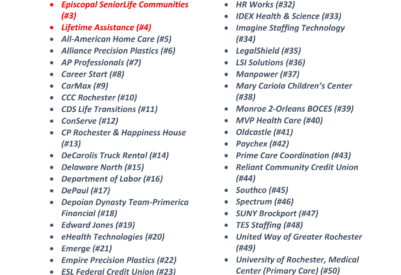
Mental Health in America: A Crisis Continuing
Southwest Tribune Newspaper, Rochester, New York
Mental health problems are a significant contributor to homelessness in the US. According to estimates, around 25% of the homeless population have a severe mental illness, and many others have less severe but still disabling conditions. The lack of access to adequate mental health care, combined with poverty and other socio-economic factors, can lead to homelessness or make it difficult for individuals to escape homelessness once they are in it.
Additionally, the stressful and unstable conditions of homelessness can further exacerbate mental health problems.
The information about the correlation between mental health and homelessness in America is widely reported in various sources, including academic studies, government reports, and media articles.
The increase in homelessness in communities across America has been a gradual but persistent trend over the last several decades. The exact timeline of the increase in homelessness in America is difficult to pinpoint, as the issue has been a persistent problem for many years. However, several factors have contributed to the increase in homelessness, including:
Lack of affordable housing: The high cost of housing in many urban areas, combined with low wages and limited government assistance, has made it difficult for many people to afford a stable place to live.
Economic downturns: Economic recessions and job losses have left many people without a source of income, making it difficult for them to maintain stable housing.
Mental illness and substance abuse: The lack of access to adequate mental health and substance abuse treatment has led to an increase in the number of people experiencing homelessness who have these conditions.
Criminal justice system: The large number of people who are incarcerated and then released into the community without support or resources can contribute to homelessness.
These are just a few of the many factors that have contributed to the increase in homelessness in communities across America.
There is no single solution to homelessness, as the issue is complex and multi-faceted. However, several approaches have shown promise in addressing homelessness, including:
Affordable housing: Providing affordable housing options, including subsidized units and permanent supportive housing, can help people escape homelessness and maintain stable housing.
Employment and income support: Providing job training, employment services, and financial assistance can help people achieve self-sufficiency and avoid becoming homeless.
Mental health and substance abuse treatment: Providing access to mental health and substance abuse treatment, including medication, therapy, and support services, can help people with these conditions maintain stable housing and avoid homelessness.
Eviction prevention: Providing financial assistance and legal support to help people avoid eviction and keep their housing can prevent homelessness.
Coordinated outreach: Providing coordinated outreach services, including street outreach, drop-in centers, and mobile health clinics, can help people experiencing homelessness access the services they need to escape homelessness.
These are just a few examples of the various approaches that can be taken to address homelessness. Effective solutions to homelessness will likely involve a combination of these and other strategies, tailored to the specific needs of each community.
Some sources of information include:
National Alliance to End Homelessness (NAEH): This organization provides data, research, and policy analysis on homelessness in the US.
Substance Abuse and Mental Health Services Administration (SAMHSA): This is a federal agency within the U.S. Department of Health and Human Services that leads public health efforts to advance the behavioral health of the nation.
National Institute of Mental Health (NIMH): This is the lead federal agency for research on mental disorders.
American Psychological Association (APA): This is the largest scientific and professional organization of psychologists in the United States.
These are just a few examples of sources that provide information on the relationship between mental health and homelessness in America.
"The Prevalence of Mental Illness in Homeless Persons: A Systematic Review" (Bassuk, E. L., Weinreb, L. F., Browne, A., & Bassuk, S. S. (1996). American Journal of Psychiatry, 153(9), 1009-1015.
"Mental Disorders and Treatment Contact among Homeless Adults" (Koegel, P., Burnam, A., Farr, A. L., & Morton, S. C. (1988). Journal of Consulting and Clinical Psychology, 56(1), 55-60.
"Mental Health Problems among Homeless Men: Prevalence and Implications for Service Utilization" (Koegel, P., & Burnam, A. (1987). American Journal of Public Health, 77(7), 814-818.
"Homelessness and Mental Illness" (Schutt, R. K., & Anderson, G. (1991). Annual Review of Sociology, 17, 127-147.
"Mental Health Services for Homeless Persons: Current Status and Future Directions" (Tsemberis, S., & Eisenberg, R. F. (2000). Psychiatric Services, 51(3), 371-378.





